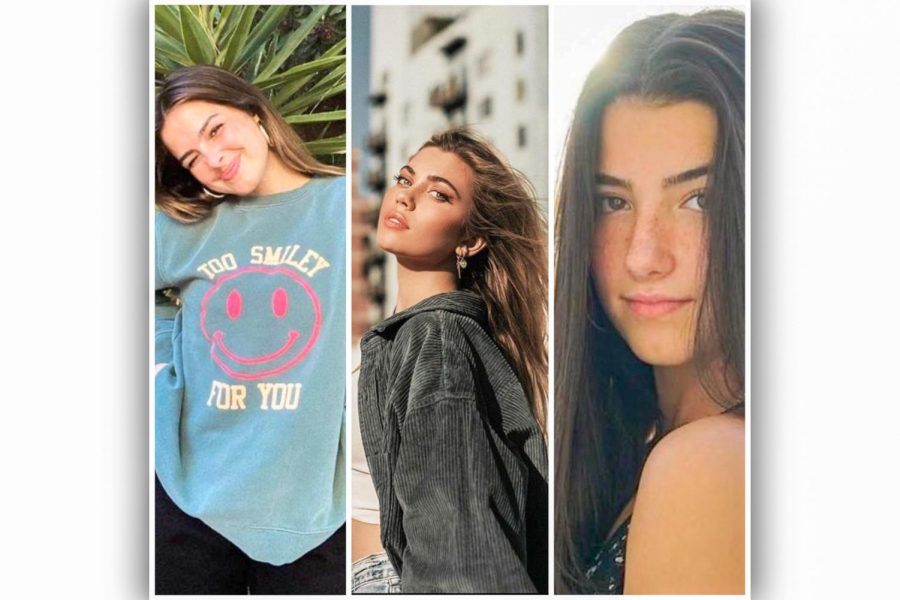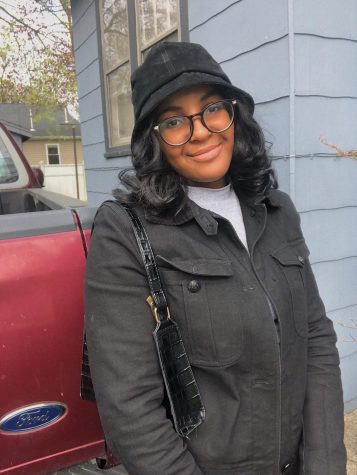Why Social Injustice Shouldn’t be Treated Like a Trend
February 17, 2021
You may remember the uproar following the death of George Floyd on May 25, 2020. Even with the Coronavirus Pandemic ravaging hospitals all over the globe, Americans took to the streets to express their frustration of repeated police brutality toward African Americans, which is now known as the reawakening of the Black Lives Matter Movement.
For those who chose to stay at home, social media was their way of protesting against social injustice. Platforms such as Instagram and Tik Tok to provide links to petitions, books, movies and other resources to educate others about social injustice and “white privilege.”
“I think Instagram and Tik Tok are a great place to spread information about social injustice,” co-founder of the Students for Social Justice (SSJ) Stella Whitefield said. “It is a good stepping stone for target audiences such as teenagers to get a basic understanding of the issues in our world. However, it is very important to not consider Instagram and Tik Tok as the only place to find this information. We need to encourage people to further their research beyond social media platforms if they want to become more aware.”
Although many took to social media to call for change, some of the internet’s elite faced criticism during the unrest of BLM. Creators like Addison Rae and 16-year-old sensation Charli D’amelio, who has over 100 million followers on Tik Tok alone, have gotten heat for not addressing the BLM Movement enough, even though she regularly addresses issues like body shaming that is prevalent on social media and promotes body positivity.
“I do not think that influencers are doing a good job at raising awareness about social injustices. They are performative at best,” Whitefield said. “Charlie Damelio and Addison Rae have done what benefits them, such as changing their profile photos to a BLM logo for a short period of time. Actions such as those do absolutely nothing for marginalized communities and those facing injustices. If they were to use their platforms to spread awareness about places to donate, volunteer and petitions to sign, in my opinion, they’d be using their platforms in the correct way.”
However, some say that it’s not the job of social media influencers to address every violation of human rights.
“I don’t think that it’s an influencer, like Tik Tok stars, who should be responsible for speaking on every social justice issue,” SSJ co-founder Gabriella Pugliese said.“Being involved in social justice and speaking your mind on specific topics on the internet often warrants a large amount of hate and mean comments towards you for what you believe to be good or bad. As a social media influencer, you get a large amount of hate to begin with, so I can understand why some influences choose not to indulge in ‘politics’ online.”
Unlike the majority of Tik Tokers and Instagramers, some have made it a priority to educate and inform their followers about social injustice. For example, popular Tik Tok and Instagram influencer Amelie Zilber shares informative posts on Tik Tok, Instagram and Twitter. She most recently addressed the insurrection at the United States capital on Jan. 6, 2021.
“[President] Trump supporters violently stormed the Capitol. No use of tear gas or rubber bullets. Meanwhile, BLM protestors were senselessly beat during their peaceful protesting,” Zilber said in a tweet.
Zilber is not the only influencer to use their platform for good. For most activists in the 21st century, social media is a reliable resource to gain a following and spread their cause to others.
“I highly recommend that you check out Alejandra Gonazales (@mestizawomanist), Luis Hernandez (@jona.nyc), and Brooke Ariel (freckledrose_),” senior Chloe Alce said. “ They are amazing activists in the gun violence prevention movement, and they all are leaders within the Youth Over Guns organization.”
This begs the question: are creators like Charli D’amelio or Addison Rae deserving of their following even though they let their fans down repeatedly?
It’s time to stop relying on your favorite creators to speak up for the change you want to see. Anyone can be a part of a better future, but it all starts with speaking up for others instead of ourselves first.



